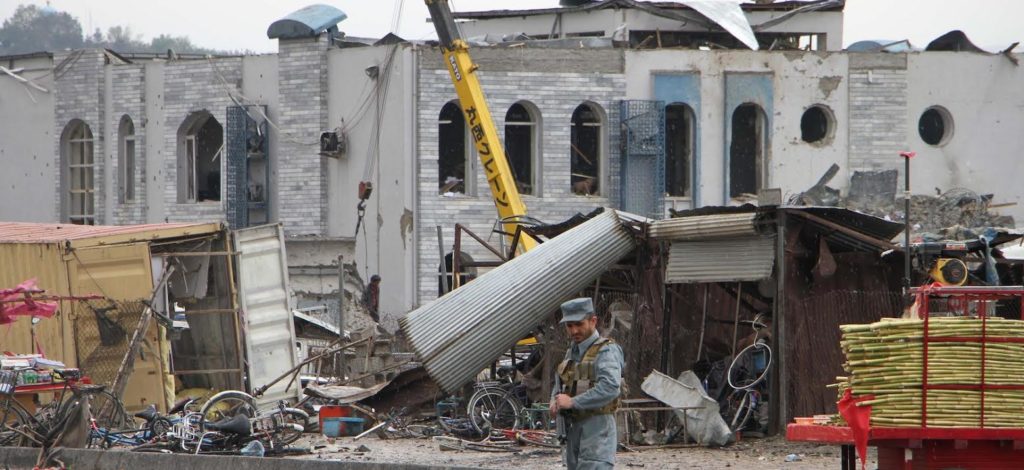FIDH
and its member organisation in Afghanistan
Armanshahr/OPEN ASIA
Press Release
Kabul, Paris, 20 April 2016 – FIDH and its member organisation in Afghanistan Armanshahr/OPEN ASIA strongly condemn the heinous terrorist attack that took place in Kabul on 19 April 2016. This latest attack in an increasing wave of terrorist violence and systematic killing of civilians in Afghanistan clearly indicates that the struggle for peace and justice in the country needs greater commitment from the national Government of Afghanistan and support from the international community.
On 19 April, a truck packed with explosives was detonated just outside of the National Directorate of Security (NDS) responsible for protecting Afghan government officials in Afghanistan’s capital, killing at least 64 people and injuring over 347 others, the majority of which were civilians. The Taliban has claimed responsibility for this attack, the deadliest single suicide attack in Afghanistan since 2011. According to United Nations Assistance Mission in Afghanistan, in the first quarter of 2016 at least 600 civilians were killed and 1,343 others were wounded. Compared to the first quarter of 2015, there has been a 26 percent increase in civilian casualties from complex and suicide attacks attributable to the Taliban and other insurgents, who have been responsible for more than 60 percent of all civilian casualties.
The withdrawal of international forces from Afghanistan and the reduction of international aid have resulted in the expansion of the Taliban’s operations and a rise in the number of civilian casualties. The Taliban continue to target civilians, which is a war crime under international law, and refuse to respect the rights of women as enshrined in Afghanistan’s Constitution. All of these violations of international humanitarian and human rights law are perpetrated in total impunity.
The failure to establish accountability for the atrocities of the past and present and the indifference of the authorities to the demands of millions of victims of violence for justice have resulted in a continuous cycle of violence and generalized mistrust in any reconciliation and peace initiatives in Afghanistan. Therefore, Afghanistan’s reconciliation efforts must ensure justice and accountability, as to guarantee the necessary trust and stability to stop the cycle of violence that results in increasing numbers of civilian victims.
Our organisations call upon the Afghan government to increase efforts to protect civilians against violence, investigate war crimes and crimes against humanity and prosecute alleged perpetrators, repeal the General Amnesty Law, and strengthen the judiciary to ensure accountability for terrorist acts. The Government should fully collaborate with the ICC and facilitate their independent work in Afghanistan. The Afghan government and its international partners must also dedicate sufficient resources to renew commitment and effectively implement the Action Plan for Justice, Peace and Reconciliation. The respect and protection of victims of war must also be ensured, and the Afghan authorities should disclose which mechanisms have been put in place to protect against unlawful casualties of Afghan and U.S. air strikes.
– END –
Press contact:
Audrey Couprie (French, English, Spanish), Tel: +33 6 48 05 91 57 (Paris) – press@fidh.org


